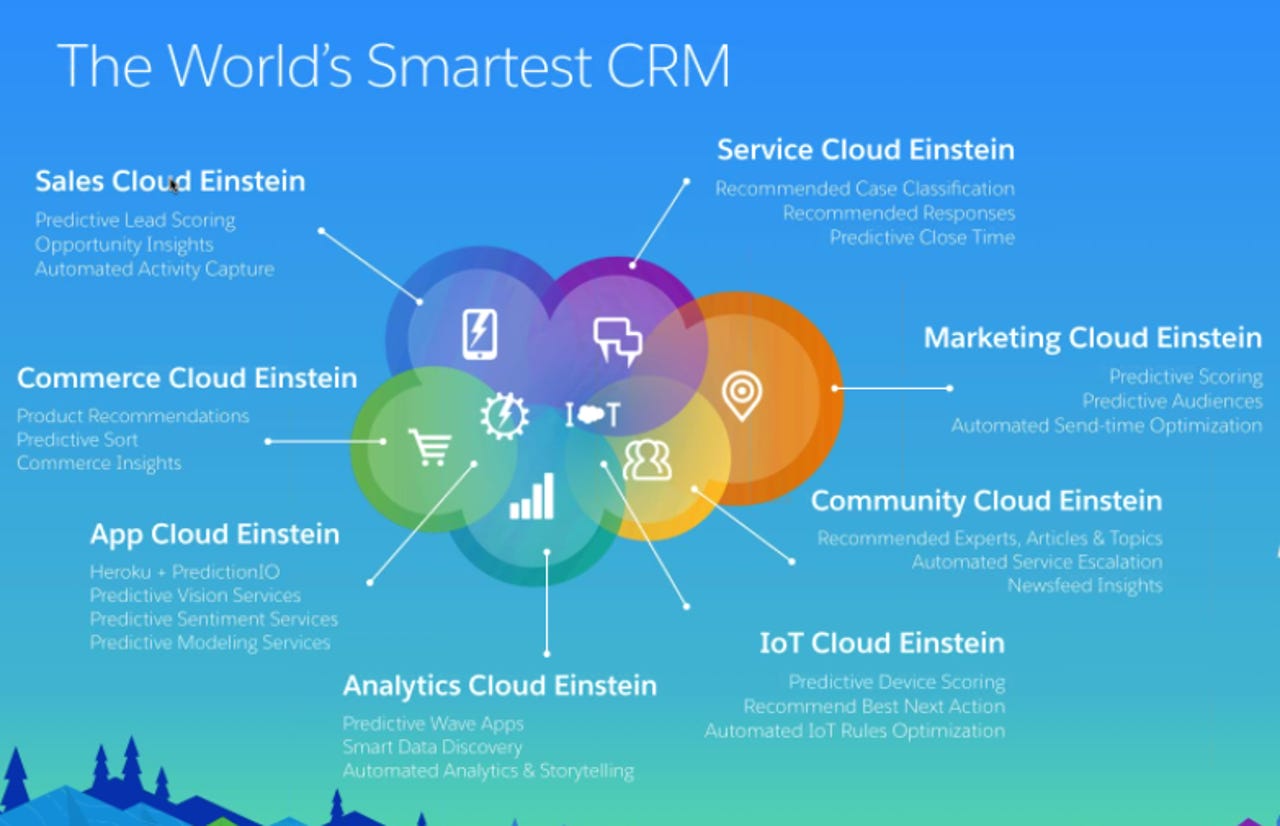Salesforce's Einstein AI platform: What you need to know

Salesforce's Einstein artificial intelligence platform will be the centerpiece of the company's Dreamforce conference and company executives have been teasing out details in recent weeks.
First, CEO Marc Benioff outlined Einstein on the company's earnings conference call. And then Einstein's direct executive team carried out a demo that highlighted features and where the AI platform would be first used (think lead scoring and sales predictive analytics).
Here's what you need to know about an AI platform that Salesforce customers will be pitched shortly:
Salesforce's plan is to infuse artificial intelligence everywhere through its clouds. John Ball, senior vice president and general manager of Einstein, said the company won't have a separate AI product. "This is AI for CRM with AI capabilities across all clouds," said Ball. "It's AI in the context of CRM."
Here's what Salesforce products Einstein will touch:

Business users will use AI as much as developers. Surely, Salesforce is courting developers with predictive vision services, customized projections, sentiment analysis and modeling. Salesforce will tie Einstein to Heroku, its developer platform. But the big win may be business users that will use Einstein's services. Ball's demo highlighted how a business user can model processes and incorporate AI. "There aren't enough data scientists in the world to build models. Models have to be built into the platform," said Ball.
Here's how Salesforce is positioning Einstein:
The sell is that Einstein and AI will ease a data scientist talent shortage and provide enterprises with tools they couldn't develop on their own. "AI is too hard for the vast majority of companies," said Ball.
Einstein was built via acquisition. Salesforce has acquired 9 AI related companies in recent years as it built its team of 175 data scientists and experts.
AI should be invisible. Ball said that AI should be something that just works in the background. Facebook photos, Amazon machine learning and Alexa and Google tools are all examples of how AI just works in the background. Salesforce hopes to do the same in a business setting.
Salesforce is betting that a new research arm can grow Einstein features and AI knowledge. Salesforce's AI research group will be run by Richard Socher, chief scientist at the company. Socher said Salesforce's AI research group will submit papers at top academic conferences and focus on computer vision, image processing and natural language processing.
Where will the data come from? Salesforce has a ton of data in its systems across its customer base and interactions with enterprises. That data provides a good metadata base that customers can then tailor. Ball noted that data isn't being shared and the modeling is automated. The Einstein system will comply with local data laws and Salesforce needs permission to include information. Here's where Einstein sits in the Salesforce stack:
Pricing is to be determined and some of Einstein will be in upcoming releases. Ball said Einstein will be part of the core platform with some features and tools being built into existing services and licenses. Other Einstein features will be additional charges.